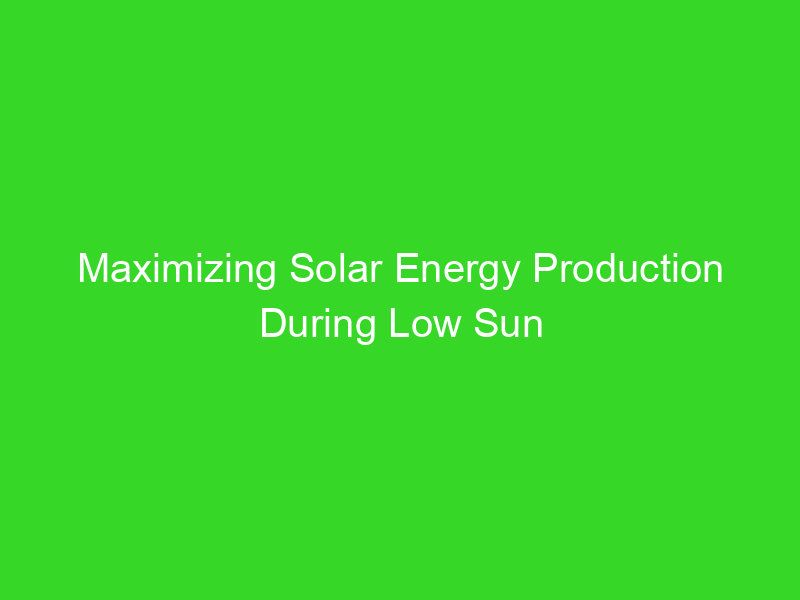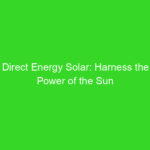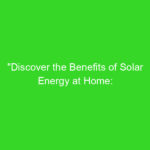
Low Sun Angles Result in Reduced Solar Energy Because:
The amount of solar energy that a solar panel can generate depends on a variety of factors, including the angle of the sun and the orientation of the panel. One of the most significant factors that affect the performance of solar panels is the angle of the sun. When the sun is low in the sky, the angle of the sun's rays hitting the solar panel is reduced, resulting in a decrease in the amount of solar energy that the panel can generate.
Understanding Solar Angles
To understand why low sun angles result in reduced solar energy, it is essential to understand how solar angles work. The angle of the sun is the angle between the sun and the horizon. This angle changes throughout the day as the sun moves across the sky. When the sun is directly overhead (at solar noon), the angle is 90 degrees. When the sun is low on the horizon, the angle is much lower, and the sun's rays have to travel through more of the Earth's atmosphere, which can result in a reduction in the amount of solar energy that reaches the solar panel.
The Effect of Low Sun Angles on Solar Energy Production
When the sun is low in the sky, the angle of the sun's rays hitting the solar panel is reduced. This can result in a decrease in the amount of solar energy that the panel can generate. The angle at which the sun's rays hit the panel is known as the incidence angle, and the greater the incidence angle, the lower the amount of solar energy that is absorbed by the panel.
How to Maximize Solar Energy Production During Low Sun Angles
While low sun angles can result in a reduction in the amount of solar energy that a solar panel can generate, there are several ways to maximize solar energy production during these times:
1. Tilt the Panels
One way to maximize solar energy production during low sun angles is to tilt the panels. By tilting the panels towards the sun, you can increase the angle at which the sun's rays hit the panels. This can result in a significant increase in the amount of solar energy that the panels can generate.
2. Use Tracking Systems
Another way to maximize solar energy production during low sun angles is to use tracking systems. Tracking systems can automatically adjust the angle of the solar panels to ensure that they are always facing the sun. This can result in a significant increase in the amount of solar energy that the panels can generate.
3. Choose the Right Location
Choosing the right location for your solar panels can also help maximize solar energy production during low sun angles. Ideally, solar panels should be installed in a location that receives the most sunlight throughout the day. This may require some research and analysis of the local climate, but it can result in a significant increase in the amount of solar energy that the panels can generate.
4. Keep the Panels Clean
Finally, it is essential to keep the solar panels clean to maximize solar energy production during low sun angles. Dirt, dust, and other debris can block the sun's rays and reduce the amount of solar energy that the panels can generate. Regular cleaning and maintenance can help ensure that the panels are always operating at their maximum efficiency.
Conclusion
In conclusion, low sun angles can result in a reduction in the amount of solar energy that a solar panel can generate. However, by tilting the panels, using tracking systems, choosing the right location, and keeping the panels clean, it is possible to maximize solar energy production during these times. By following these tips, you can ensure that your solar panels are always operating at their maximum efficiency and generating as much solar energy as possible.





